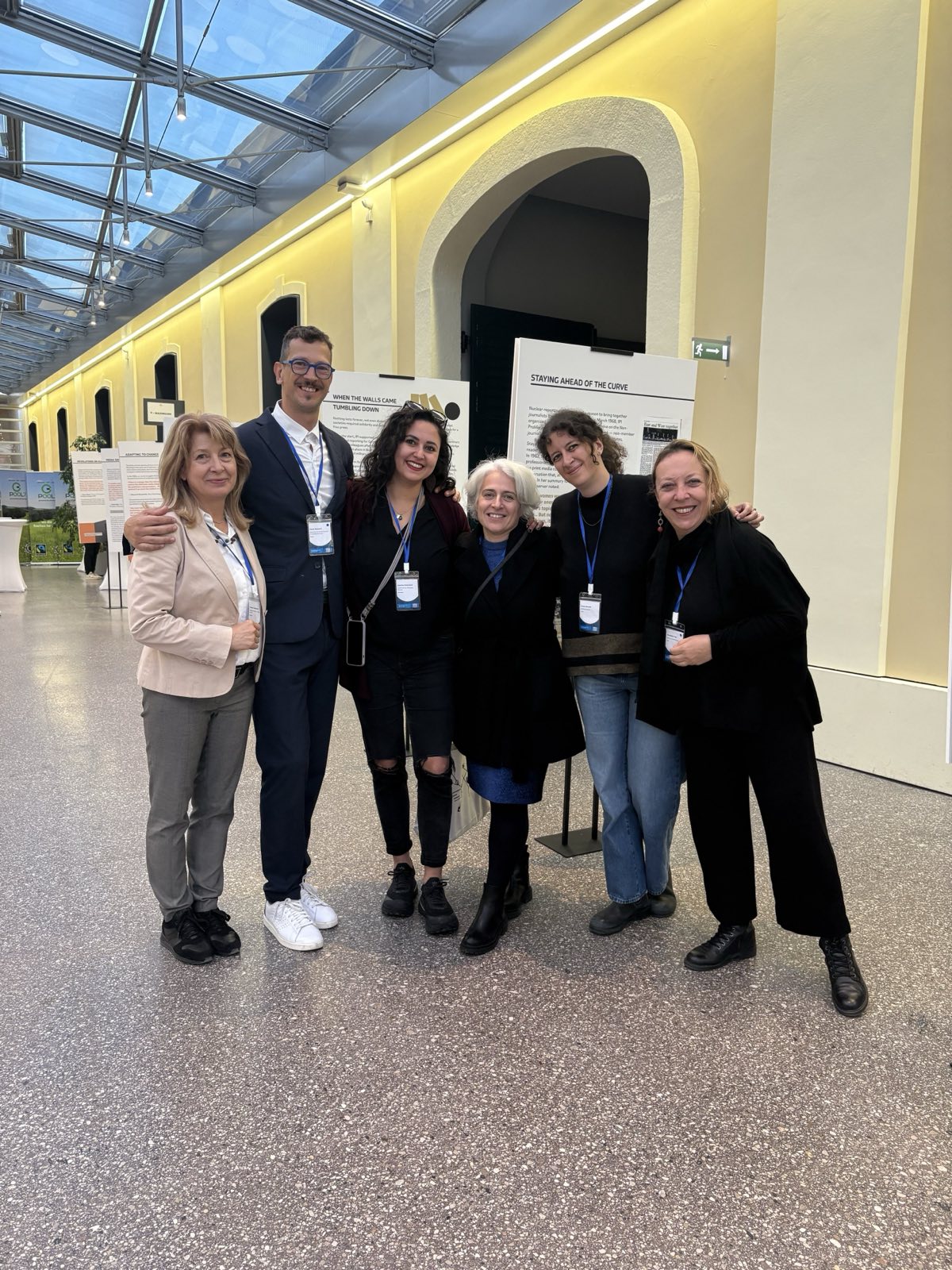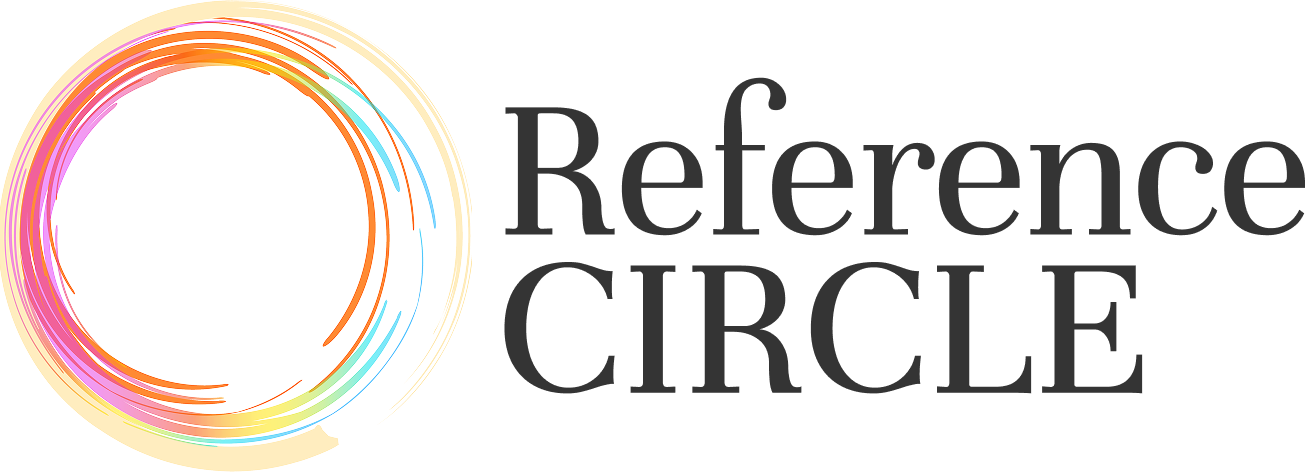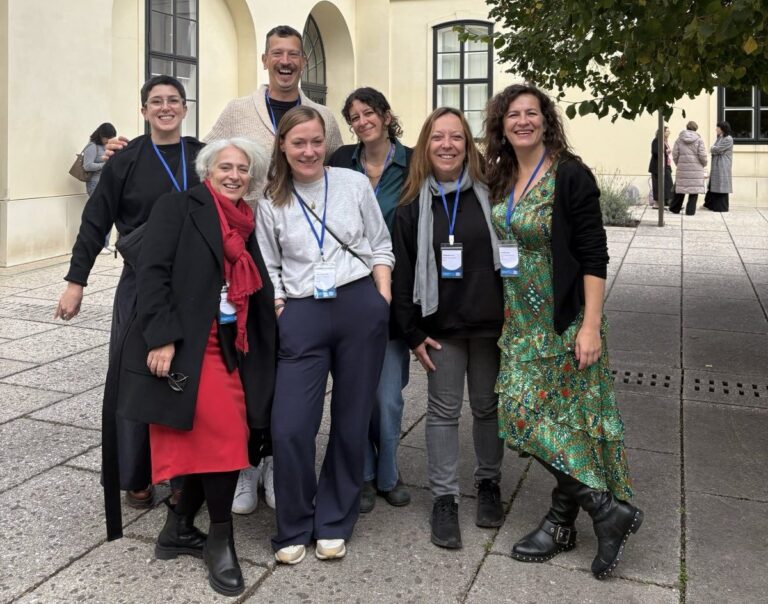At IPI’s milestone Congress in Vienna, Reference members brought stories of innovation, resilience and collaboration to life, showing how journalists across borders are shaping the future of independent media.
From 23 to 25 October, Vienna became a hub of energy and exchange as more than 600 journalists and media innovators from over 100 countries gathered for the 2025 IPI World Congress and Media Innovation Festival. The event marked 75 years since the founding of the International Press Institute (IPI), an organisation that has defended press freedom through decades of political and technological change.
This year’s theme, ‘Defending the Future of Free Media’, felt particularly timely. Amid growing threats to truth and transparency, the Congress served as a vital meeting place for those determined to safeguard journalism’s public mission.
“For 75 years, IPI has shown that press freedom is never given. It is protected through courage, collaboration and the relentless pursuit of truth,” said Peter Matjašič, Director of the Reference. “Our network stands united to uphold these values for the next generation of journalists.”
Reference Members on the Frontlines of Innovation
Representing their newsrooms were several Reference members making up a diverse and dynamic delegation: Anuška Delić (Oštro), Catarina Carvalho (Mensagem), Elisabetta Tola and Giulia Bonelli (Facta), Joanna Krawczyk and Julia Hildebrand (Correctiv), Lydia Emmanouilidou (Solomon), Sabrina Faramarzi (Are We Europe), and Peter Matjašič (Reference).
Throughout the Congress’s panels and workshops, members shared concrete lessons from their newsrooms, exploring new approaches to local journalism, editorial independence and sustainable storytelling.

In the session ‘The New Age of Local News: Balancing Impact and Sustainability’, Catarina Carvalho represented Mensagem in a discussion on how community-based reporting can re-engage local audiences, build meaningful partnerships and reinforce the civic role of journalism.
Julia Hildebrand from Correctiv took part in ‘Digital Independence: Building Alternatives to Big Tech’, examining how newsrooms can reduce their dependence on large technology platforms through open-source tools, shared distribution networks and collaborative strategies that protect editorial autonomy.
Solomon’s, Lydia Emmanouilidou joined the ‘Lightning Round: Tales of Resilience’, sharing how journalists adapt to financial, legal and political pressures. She highlighted the importance of mental health support, international cooperation and creative solutions that allow newsrooms to endure and thrive.
Courage Recognised
One of the most moving moments of the Congress was the presentation of the 2025 IPI-IMS World Press Freedom Hero Awards, which honour journalists who have demonstrated extraordinary bravery in the face of censorship, intimidation and violence.
This year’s awardees were Mzia Amaglobeli (Georgia), Martin Baron (United States), Mariam Abu Dagga (Palestine, posthumously), Gustavo Gorriti (Peru), Victoria Roshchyna (Ukraine, posthumously), Shirley Yam (Hong Kong), and Tesfalem Waldyes (Ethiopia).
Their stories reminded everyone present that the pursuit of truth often comes with real personal risk. Each honouree embodies the courage and integrity that define journalism at its best.
Carrying the Story Forward
As IPI celebrated its 75th anniversary, the Congress was not only a moment of reflection but a forward-looking conversation about how journalism can remain relevant, trusted and free.
For Reference, it was an opportunity to strengthen connections within its growing international network and to share practical experiences that support media organisations facing similar challenges. From collaborative investigations to shared technological tools, members demonstrated how cooperation and solidarity can keep public interest journalism strong.
In an era when freedom of the press is under renewed pressure, the spirit of Vienna was one of commitment and imagination. The discussions, workshops and partnerships forged during the Congress showed that journalism’s future will be built not only on defending what exists, but on working together to create what comes next.

